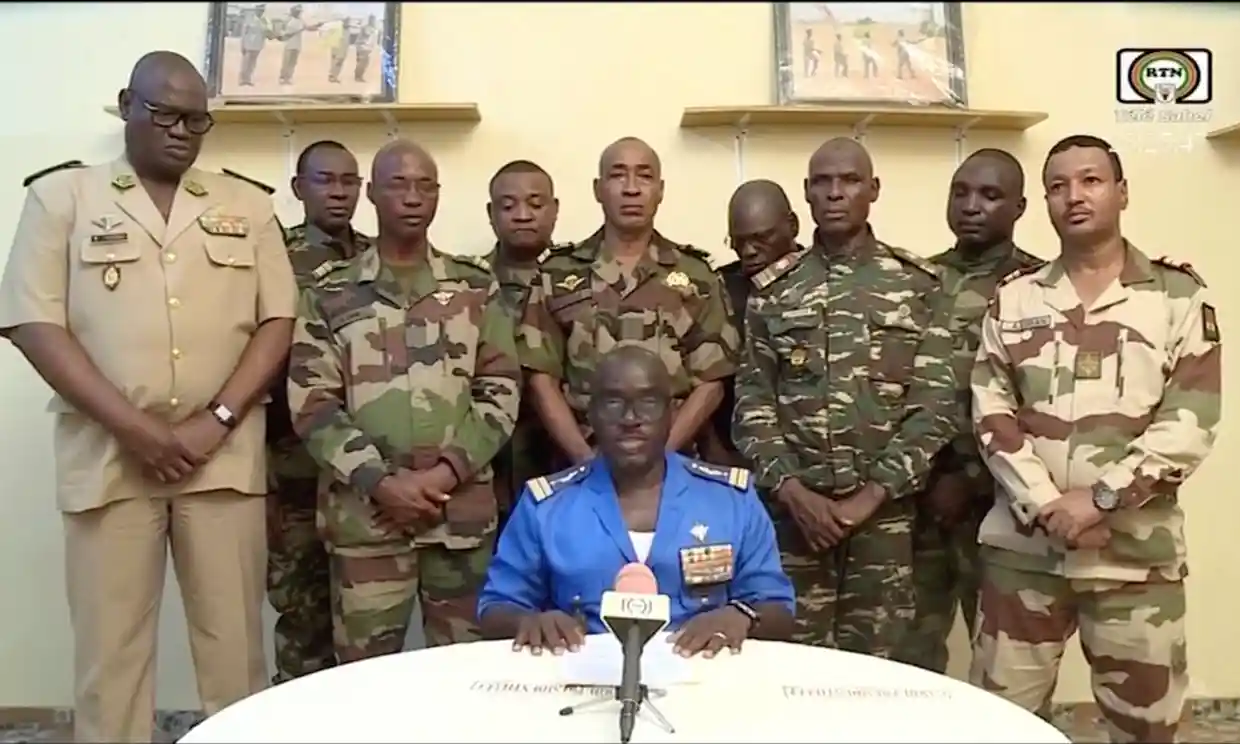Niger’s military regime, which came into power after a coup, has announced the formation of a new government. The country’s new leader, General Abdourahamane Tiani, made the announcement via a decree that was read out on national television on Wednesday evening.
The 21-member government was announced just before a crucial summit of Niger’s West African neighbors in Abuja on Thursday. The newly appointed Prime Minister, Ali Mahaman Lamine Zeine, will head the government. Zeine assumed his role on Monday.
The government comprises 20 ministers, with generals from the Conseil national pour la sauvegarde de la patrie (CNSP) taking charge of the Defense and Interior ministries. General Salifou Mody and General Mohamed Toumba will assume these roles. The formation of this government solidifies the military regime’s control after the overthrow of elected President Mohamed Bazoum on July 26. It also appears to be a statement of defiance towards the leaders of the Economic Community of West African States (Ecowas), who are gathering in Abuja to assess the situation in Niger.
The Ecowas summit is expected to bring forth “important decisions,” according to the regional organization. Ecowas remains committed to using diplomatic channels to restore constitutional order in Niger, while simultaneously maintaining the option of using force to reinstate President Bazoum.
However, the new leadership in Niamey views Ecowas as an organization “in the pay” of France, their main target since seizing power. They have accused Ecowas of violating Niger’s airspace by allegedly allowing a French army plane from Chad to enter, despite the airspace being closed since Sunday. Additionally, they claim that Ecowas has “freed terrorists.” France has swiftly denied these accusations.
The situation in Niger remains tense as the military regime asserts its dominance against regional and international pressure to return to democratic governance. The country’s political instability has raised concerns among its West African neighbours, particularly regarding its potential impact on regional security.
Niger, a landlocked country in the Sahel region, has been grappling with various security challenges, including an insurgent presence and the spillover effects of conflicts in neighbouring countries such as Mali and Nigeria. The military coup has only added to the country’s existing challenges, and there is growing uncertainty about the regime’s ability to address these issues effectively.
As leaders from across West Africa gather in Abuja, it is expected that discussions will focus on finding a peaceful resolution to the crisis in Niger. The outcome of the summit will be closely watched by both domestic and international observers, as it will determine the direction of the region’s response to the military takeover. Concerns over Ecowas’ credibility and its relationship with France are likely to dominate the proceedings.
Ultimately, the future of Niger’s democratic governance hangs in the balance as the military regime consolidates its power and faces increasing pressure from regional and international actors. The decisions made at the Ecowas summit will undoubtedly shape the country’s trajectory in the coming months.
Image Credit: ORTN/Reuters





